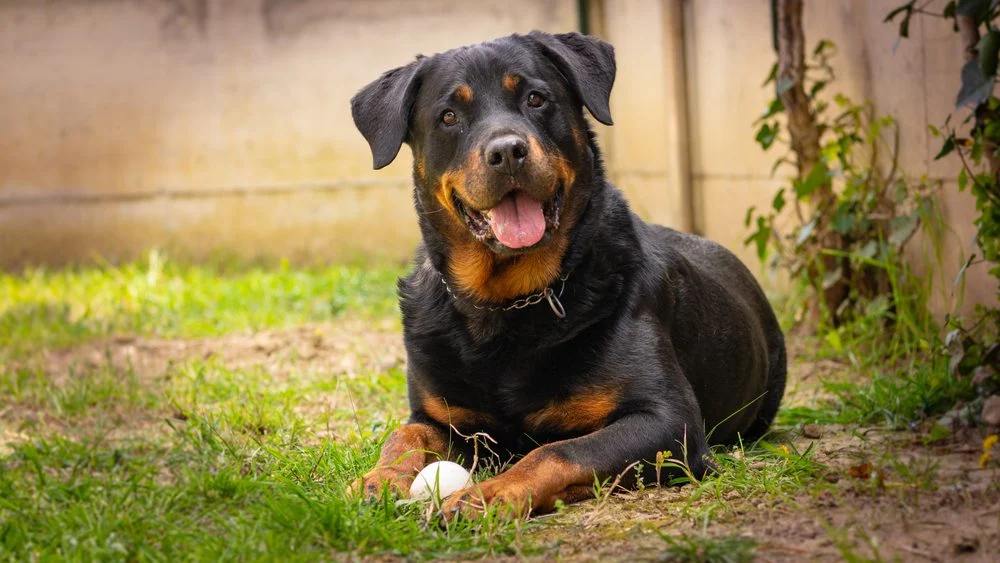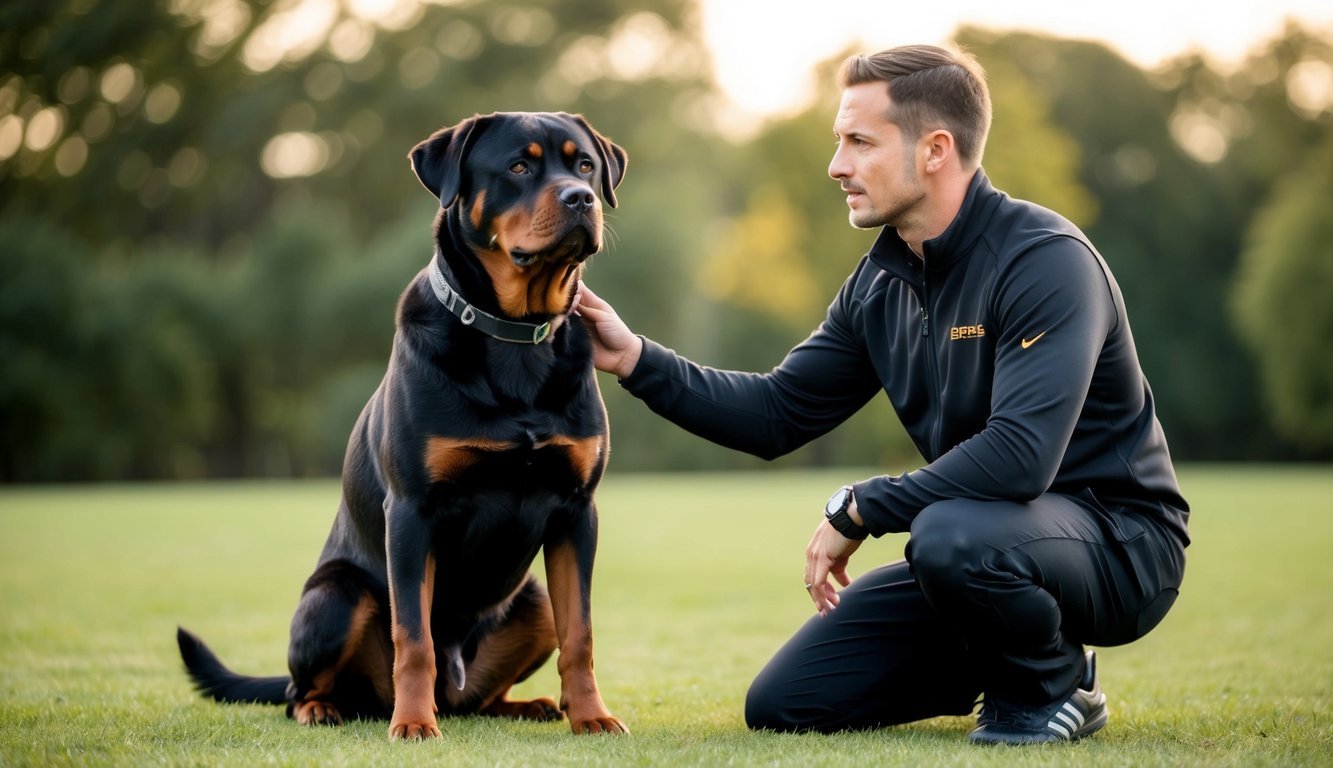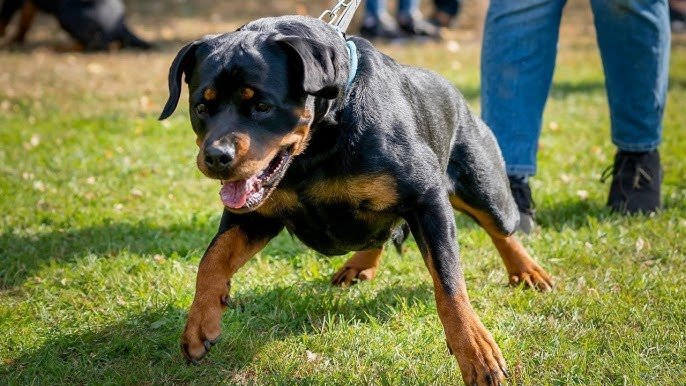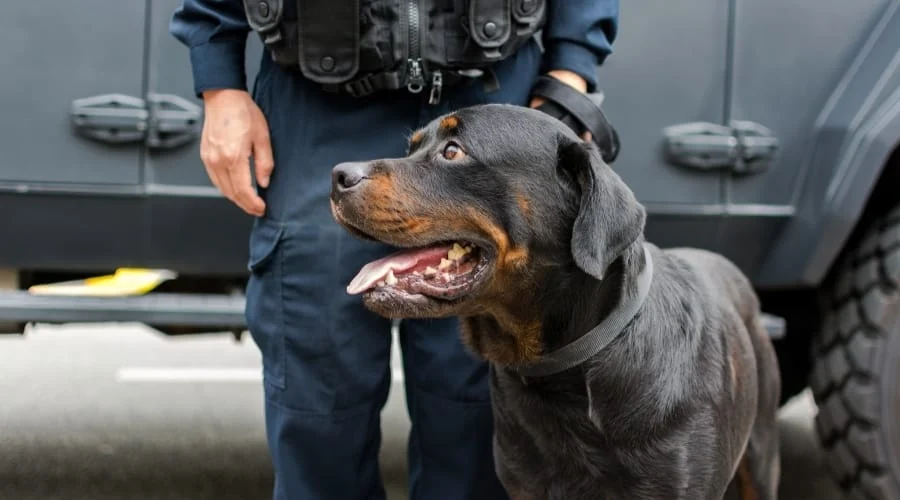How to Train Your Rottweiler Effectively and Safely
Rottweilers are a powerful, confident breed known for their intelligence and loyalty. However, their strong-willed nature means they need proper training to become well-behaved, obedient companions. If you’re planning to train your Rottweiler, it’s important to approach it with patience, consistency, and respect. Proper training can lead to a strong bond between you and your dog while ensuring that your Rottweiler is a safe and well-mannered member of your family.
Here’s a guide on how to train your Rottweiler effectively and safely:
1. Start Early with Socialization
Socialization is one of the most important aspects of training a Rottweiler. It’s vital to start socializing your puppy early, ideally between 8 and 16 weeks of age. Early exposure to different people, pets, and environments helps prevent fearfulness and aggression later in life. It also teaches your Rottweiler to behave appropriately around others, ensuring they grow into a confident, well-adjusted dog.
Socialization Tips:
- Expose your Rottweiler to various environments, sounds, and people.
- Introduce them to other dogs and animals in controlled settings.
- Take your puppy to puppy classes or arrange playdates with other vaccinated puppies.
2. Use Positive Reinforcement
Rottweilers respond best to positive reinforcement techniques. Reward-based training is effective and promotes a trusting relationship between you and your dog. Praise, treats, and toys are excellent tools to reinforce good behavior. Avoid harsh methods, as they can lead to fear and aggression, which can be counterproductive to your goals.
Positive Reinforcement Tips:
- Reward good behavior immediately with treats or verbal praise.
- Use toys or playtime as rewards for obedience and learning.
- Keep training sessions short (5-10 minutes) to maintain focus.

3. Establish Clear Boundaries and Consistency
Rottweilers are naturally confident and strong-willed, so it’s essential to establish clear rules and boundaries from the start. Consistency is key in training; your Rottweiler should understand that the same rules apply at all times. If you let certain behaviors slide on occasion but correct them the next time, your dog will become confused and less likely to follow commands.
Consistency Tips:
- Use the same commands and hand signals every time.
- Be consistent with boundaries and training expectations across all family members.
- Correct unwanted behavior immediately to avoid confusion.
4. Train Basic Obedience Commands
Rottweilers are highly intelligent and can learn a wide variety of commands, but it’s essential to start with the basics. Commands like “sit,” “stay,” “come,” “down,” and “leave it” are foundational and will help your dog understand how to behave in various situations. Once they master these basic commands, you can move on to more advanced training.
Basic Obedience Training Tips:
- Keep training sessions short and focused to prevent frustration.
- Start with one command at a time and gradually build on them.
- Use praise and rewards immediately after a correct response.
5. Address Behavioral Issues Early
If your Rottweiler shows any signs of undesirable behavior, such as biting, barking excessively, or being overly aggressive, address it as soon as possible. Ignoring behavioral issues can lead to them becoming ingrained habits that are harder to correct later on. Early intervention allows you to guide your dog toward more appropriate behavior before issues escalate.
Behavioral Issue Tips:
- Redirect undesirable behavior with a command or distraction.
- Use positive reinforcement to encourage proper behavior.
- Consult a professional trainer if behavioral problems persist.
6. Incorporate Mental Stimulation
Rottweilers are highly intelligent and need mental stimulation in addition to physical exercise. Without enough mental challenges, they can become bored, which may lead to destructive behavior. Engage their minds with puzzle toys, obedience training, and activities that require problem-solving.
Mental Stimulation Tips:
- Use interactive toys or puzzle feeders to keep your Rottweiler mentally engaged.
- Teach new tricks regularly to challenge their mind.
- Provide opportunities for your dog to explore and problem-solve.
7. Ensure Proper Exercise and Physical Activity
Rottweilers are an active breed with high energy levels, and without sufficient exercise, they may become hyperactive or anxious. Regular exercise is crucial for your dog’s physical and mental well-being. Aim for daily walks, jogs, or playtime in a safe, enclosed area. Activities like fetch, swimming, or hiking are excellent ways to tire them out.
Exercise Tips:
- Provide at least 1 hour of exercise each day, but adjust based on your dog’s age and health.
- Mix up exercise routines to keep things interesting for your dog.
- Allow your dog to engage in play with other dogs when possible to improve social skills.
8. Stay Patient and Positive
Training a Rottweiler takes time, especially since they are an independent breed. Patience and a positive attitude are key. If your Rottweiler is not picking up a command right away, stay calm and avoid frustration. Take a break and come back to the lesson later. Positive energy from you will encourage your dog to keep trying.
Patience Tips:
- Stay calm and patient during training sessions.
- If necessary, take a break and resume training later.
- Never punish your Rottweiler for not learning quickly.
9. Socialize and Train with Other Dogs
In addition to socializing with humans, your Rottweiler should also be trained to interact well with other dogs. This is particularly important if you have other pets at home. Playdates and training sessions with other dogs can help teach your Rottweiler proper dog-to-dog etiquette and prevent territorial or aggressive behavior.
Dog-to-Dog Training Tips:
- Arrange controlled play sessions with other vaccinated dogs.
- Supervise your dog around other dogs to ensure appropriate behavior.
- Gradually expose your Rottweiler to different dogs in various environments.
10. Seek Professional Help When Needed
While many owners can train their Rottweilers successfully with time and effort, it’s okay to seek professional help if needed. A certified dog trainer with experience in working with large, confident breeds can be a valuable resource if you’re encountering specific challenges. Professional trainers can also help with advanced obedience, behavior modification, or aggressive tendencies.
When to Seek Professional Help:
- If you’re unable to control aggressive behavior or fear-based issues.
- If your Rottweiler is not responding to training methods.
- When you need help with more advanced training, like off-leash control.
Conclusion
Training a Rottweiler requires dedication, consistency, and the right approach. By establishing clear rules, socializing early, and providing positive reinforcement, you can raise a well-behaved and happy dog. Remember, Rottweilers are intelligent, strong-willed, and eager to please, which makes them highly trainable when guided by an experienced and patient owner. Whether you are a first-time Rottweiler owner or a seasoned dog parent, training is a lifelong process that strengthens the bond between you and your furry companion.
What are your top training tips for Rottweilers? Share your experiences in the comments below!








